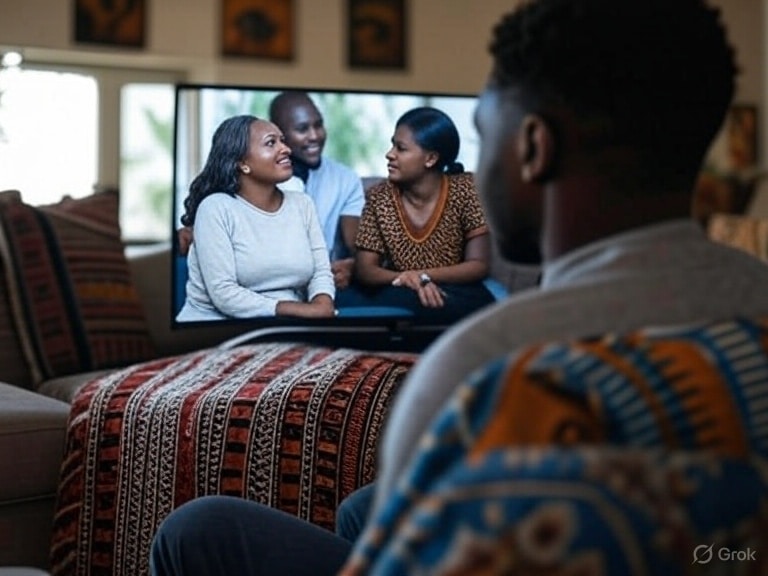Table of Contents
Africa’s television landscape is one of the most diverse and fastest evolving in the world. With the rise of digital platforms, satellite access, and mobile streaming, live TV is no longer just about local stations—it’s about regional storytelling, cross-border influence, and global reach. Whether it’s music videos airing in Lagos, a breaking news segment in Nairobi, or a Nollywood premiere in Accra, Africa live TV channels now play a major role in shaping public discourse, cultural trends, and entertainment habits.
This article explores key Africa live TV channels that consistently deliver standout programming in three influential categories: music, news, and Nollywood. These channels aren’t just popular—they help define what audiences across the continent and the diaspora watch, value, and share.
Music: Beat, Rhythm, Influence
If African music is your passion, Nessma TV (Tunisia) has built its reputation on entertainment programs that spotlight Maghrebi music, from traditional pop to modern fusion. Its variety shows and talent competitions provide a platform for emerging artists, while also keeping audiences connected to well-loved hits across North Africa.
For a more cultural focus, Tamazight TV (Morocco) integrates Amazigh traditions into its schedule, featuring music segments alongside cultural documentaries. The channel plays a vital role in preserving indigenous sounds and promoting diversity within the wider African music scene.
Meanwhile, SABC 1 (South Africa) is synonymous with contemporary African pop culture. It brings music videos, variety shows, and youth programming to millions of homes, making it a hub for South Africa’s vibrant entertainment scene and a launchpad for trends like Amapiano.
News: Facing the Headlines
When it comes to pan-African news delivered swiftly and impartially, Africanews is a leading source. It offers multilingual reporting across sub-Saharan Africa. Its formats balance global trends with local context.
Other platforms—like Channels TV (Nigeria)—blend news with entertainment and education. It gives contemporary viewers an alternative with a cultural twist.
Local heroes like NTV Kenya offer something equally vital: a community lens. The channel is rich with local music, food, culture, and talk shows with investigative segments that add depth to breaking headlines make it a cornerstone of Kenyan media.
Nollywood and Local Film Magic
For Nollywood lovers, channels like ORTM 1 and ORTM 2 (Mali) is a non-stop streaming marathon. Talk shows, reality shows, and carefully curated films offer dedicated Nollywood entertainment around the clock.
Meanwhile, Canal 2 International (Cameroon) has become a cultural reference point for viewers who enjoy African series, music shows, and variety programming. By broadcasting locally produced films and dramas, it strengthens regional voices in a media environment often dominated by imported content.
Why These Channels Matter
Live African television is an infrastructure for local narratives, identity-building, and public dialogue. Channels that focus on music, news, and Nollywood each play distinct but interconnected roles in that ecosystem.
Music channels help shape the sonic identity of a generation. Platforms like Sound City and TRACE don’t just broadcast what’s trending; they help make it trend. By curating regional and international playlists, they create exposure for new artists, genres, and scenes, from Afrobeats in Lagos to Amapiano in Johannesburg, often before global streaming services catch on.
News channels like Channels TV or NTV Kenya function as trusted anchors in countries where media freedom and public discourse are often contested. They provide real-time updates not just on elections or policy but on issues that are hyper-local and immediately relevant: electricity outages, health crises, student protests.
Then there’s Nollywood, Africa’s largest film industry by output. Channels don’t just replay box-office hits — they create continuity for serial storytelling and allow stories to travel across borders and generations. In countries where theatergoing may be inaccessible or expensive, live TV is the way people encounter family sagas, village comedies, urban thrillers, and traditional lore.
Together, these channels offer more than passive viewing. They reflect what people care about and celebrate, while questioning the issues that matter.
A Look Ahead
The future of African live TV looks dynamic. Platforms like UVOtv, offering free dedicated African and international channels via mobile apps and satellite, are changing how content is accessed across the continent. As streaming expands, expect greater diversity, more niche flavors, and the emergence of hybrid genres weaving culture, music, news, and film under one roof.


